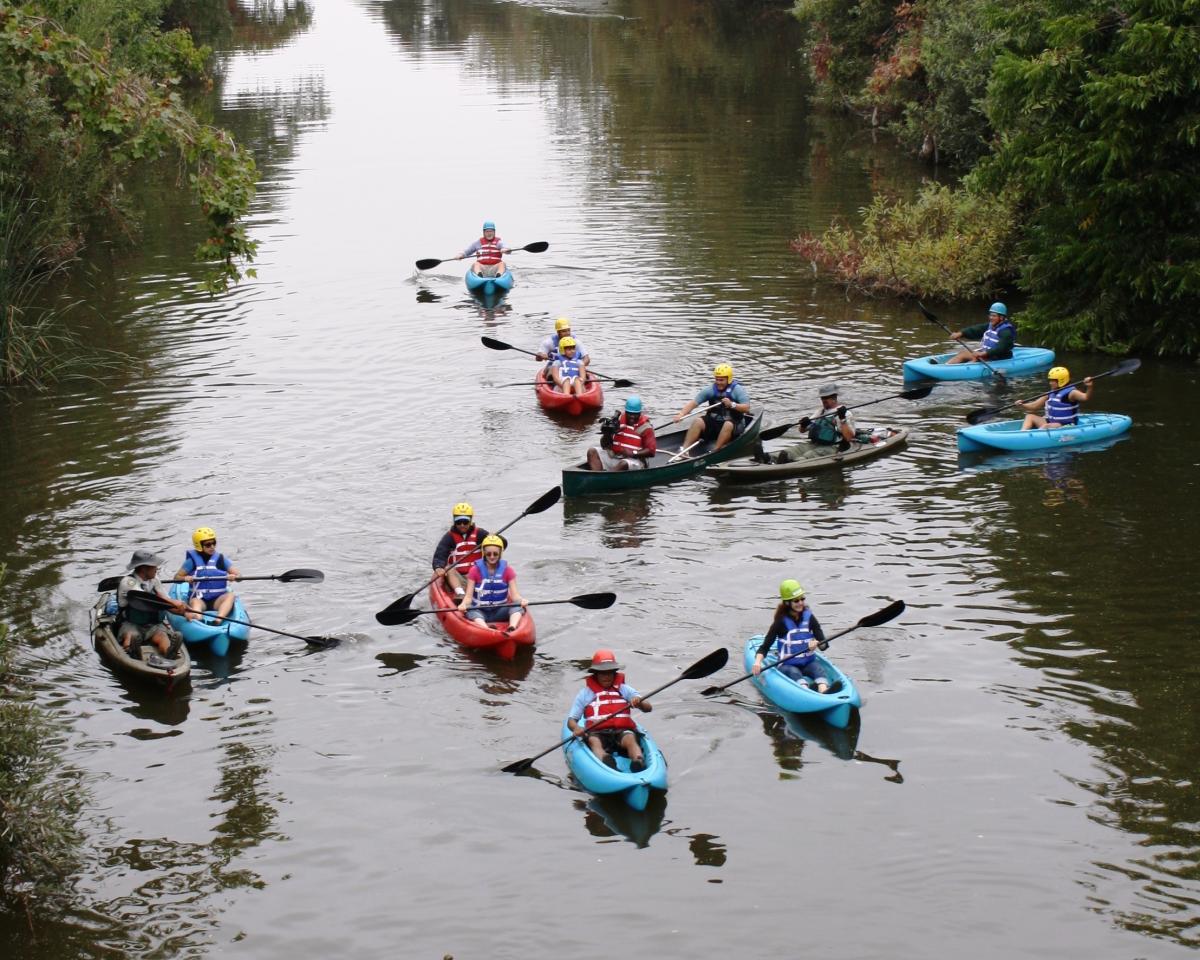
Winner: LA Conservation Corps
The LA River is an important ecological, economic, and social concern of agencies and entities at federal, state, regional and local levels. It was recently included as one of seven city waterways in the Urban Waters Federal Partnership, which spotlights federal efforts to connect city neighborhoods to the water.
Last year, the City of Los Angeles passed a motion requesting a report to investigate the feasibility of a pilot project for non-motorized boating on the Los Angeles River. The LA Conservation Corps (LA Corps), working with a variety of governmental entities and interest groups at all levels, developed a proposal for boating on the River within the Sepulveda Basin. The project, entitled Paddle the LA River, focused on safety, access, and environmental education. The U.S Army Corps of Engineers (USACE) issued a license to the LA Corps, which allowed ten weekends (Friday, Saturday and Sunday) of river access: from July 22 to September 25, 2011. The innovative pilot program represented the first time such an endeavor had ever been accomplished legally on the LA River.
The Paddle the LA River website went live on August 9, 2011 at 7:00 a.m. PST and within the first 10 minutes of launch, all 280 available seats sold out. During the first week of the program, the waiting list surpassed 350 people. To date, close to 1,000 people have signed-up on list-serve. These numbers clearly indicate that there is overwhelming interest by the general public for recreational activities such as this along the river.
The pilot program gave eight Corpsmembers the opportunity to paddle their way into a historical chapter in the revitalization of the LA River. The program also provided them with leadership skills, educational awareness, and knowledge of the River, enhancing their appreciation for wildlife and encouraging ongoing stewardship. Corpsmembers received a one-week certified training on River & Flood Water Rescue, Swift Water Rescue, and Low Angle Rope Rescue by certified staff from Mountain Recreation and Conservancy Authority (MRCA). The Corpsmembers and staff also received First Aid CPR training along with basic canoe and kayaking skills. Two educational workshops covered the river’s history, current management and governance, flora and fauna, water supply, water quality, and other related watershed issues. Corpsmembers benefited from scheduled guest speakers from a variety of government agencies and non-profit organizations who provided a wide range of expertise involved in LA River efforts.
As part of the project, a survey was developed to obtain participant feedback about their paddling experience and to measure the success of the program. Eighty-eight (88) participants completed the survey. When asked if the pilot program should be permitted to continue, 100% of respondents said “yes.” 100% of respondents also agreed that the program should be made permanent. All 88 participants indicated that the program impacted the environment positively while 98% found the program very informative.
As an additional note, a press conference was held to announce the launch of the Paddle the LA River project. The mainstream media was present in force. Local and international media provided exposure to a river that is normally seen as waste channel that guides water runoff as quickly away from the city as possible. These collective awareness measures helped raise consciousness of a presence of a river that exists within the city, containing a whole ecosystem, wildlife, plus water that connects and drains into the ocean. This media coverage was estimated to have been worth several million dollars. Several notable news outlets who produced reports about the project include NBC LA, ABC, the BBC, Univision, CNN, Time Magazine, National Public Radio (NPR), The New York Times, The Los Angeles Times, and The Huffington Post among many others.
As a result of the success of Paddle the LA River project, the LA Conservation Corps has been asked by city officials, river organizations, and community members to continue and expand the project in 2012.





































































